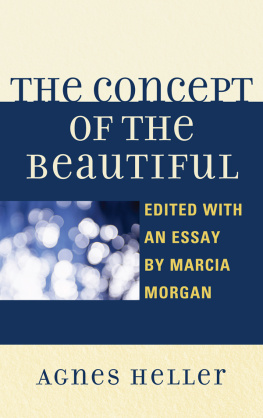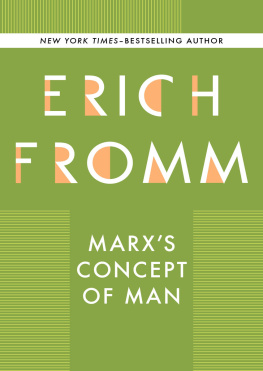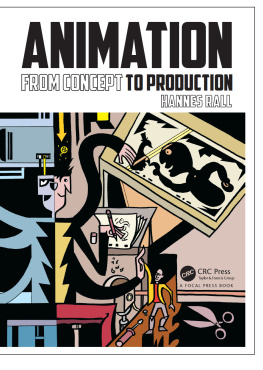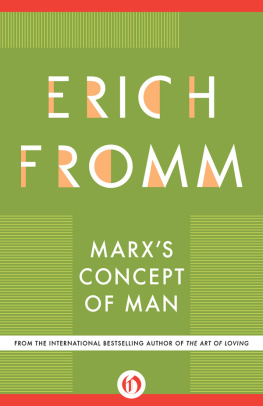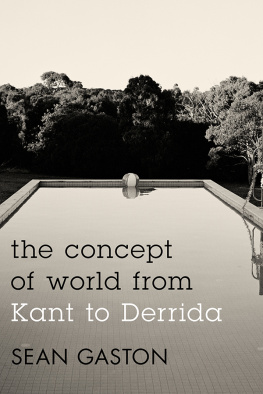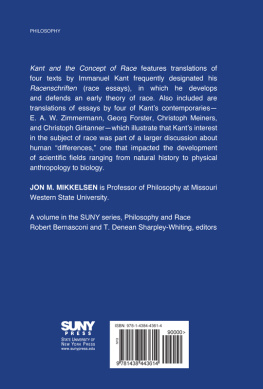Morgan Marcia - The Concept of the Beautiful
Here you can read online Morgan Marcia - The Concept of the Beautiful full text of the book (entire story) in english for free. Download pdf and epub, get meaning, cover and reviews about this ebook. City: Lanham;Md, year: 2012, publisher: Lexington Books, genre: Science. Description of the work, (preface) as well as reviews are available. Best literature library LitArk.com created for fans of good reading and offers a wide selection of genres:
Romance novel
Science fiction
Adventure
Detective
Science
History
Home and family
Prose
Art
Politics
Computer
Non-fiction
Religion
Business
Children
Humor
Choose a favorite category and find really read worthwhile books. Enjoy immersion in the world of imagination, feel the emotions of the characters or learn something new for yourself, make an fascinating discovery.
- Book:The Concept of the Beautiful
- Author:
- Publisher:Lexington Books
- Genre:
- Year:2012
- City:Lanham;Md
- Rating:5 / 5
- Favourites:Add to favourites
- Your mark:
- 100
- 1
- 2
- 3
- 4
- 5
The Concept of the Beautiful: summary, description and annotation
We offer to read an annotation, description, summary or preface (depends on what the author of the book "The Concept of the Beautiful" wrote himself). If you haven't found the necessary information about the book — write in the comments, we will try to find it.
The Concept of the Beautiful — read online for free the complete book (whole text) full work
Below is the text of the book, divided by pages. System saving the place of the last page read, allows you to conveniently read the book "The Concept of the Beautiful" online for free, without having to search again every time where you left off. Put a bookmark, and you can go to the page where you finished reading at any time.
Font size:
Interval:
Bookmark:
The Concept of the Beautiful
Chapter 1
The Platonic Concept of the Beautiful
The Historical Vicissitudes of the Concept
The scene is set for a group of friends to meet. Older and younger men gather at leisure to discuss matters of the spirit, generally under the guidance of a teacher who is wise and charismatic. The men believe in a higher world and they believe in the highest world. However, if men explore spiritual things together, the bond of love will tie them to each other in the form of both Ers and Philia . Nothing is more erotic than philosophical speech. This eroticization is magnified whenever Ers is mentioned, even if in disgust or shame. What matters is that it is mentioned. This is a group of exalted men; this is a situation of ekstasis . All eyes are on the charismatic teacher, and everyone is also looking at each other. This is a group of men among whom felicity could dwell. Plato stated many times that gods are never jealous. Why was this statement so important and worthy of repetition? It was important because men are jealous, and in small esoteric circles there is perhaps more jealousy than in the public sphere.
Part 1
Ers, Thn a tos , Madness, and the Ascent: Platos Warm Metaphysics of Beauty
Young Plato fell in love with Socrates, but Socrates was ugly. One cannot fall in love with the ugly; one loves only the beautiful. Plato could not say that he fell in love with the wise one who happened to be ugly. Thus, he proclaimed that his beloved was beautiful, superior in beauty to anyone else considered beautiful by the ignorant. One says, This is not beautiful, but something else is beautiful, and Plato proclaimed similarly, This is a lower kind of beauty, but there is also a higher kind. However, this higher, true and real beauty is invisible to the pedestrians eye. Plato, who loved Socrates, is the one who loved the true Beauty, the higher species of the beautiful. His love is more subtle and sublime than the love of any others, for he can see and love the supreme beauty of the invisible spirit and soul; he can see this love with his spiritual eyes. It is young Plato who speaks through the character of Alcibiades in the Symposium : What [Socrates] reminds me of more than anything is one of those little sileni that you see on the statuaries stalls... theyre modeled with pipes or flutes in their hands, and when you open them down the middle there are little figures of the gods inside. But this is just a simile, for the divine picture, the soul of Socrates, is not accessible through the opening of the silenis body. Not everyone can open it; only love can perform the miracle. There are two miracles that appear at once: the miracle of beauty hidden behind an ugly mask, and the miracle of love that sees through the mask into the essence of another persons soul. This is the primal scene of the concept of the beautiful: ers and kalon, love and the beloved. We love the beautifuland it is beautiful because we love it.
We see real beauty in the sileni whose body must be opened; we see the picture of the deity within. The uncanny holds the candle for the primal scene. The philosophic-mythological interpretation of the birth of Love and Beauty as recited by Diotima through Socratess speech in the Symposium is the ironic confirmation of Alcibiadess speech. Before Alcibiades enters the scene, Socrates conveys the message that he (Socrates) is well understood. Although Alcibiadess speech is last in the dialogue, the experiences he advertises about Socrates precede the banquet, for they took place outside the frame of the symposium and were also captured philosophically through Diotimas story.
Diotima discloses that we desire what we do not have. Love is not the beautiful because it is desire. What we desire, the object of our love, is truly what is beautiful. Diotima negates: she calls into question the usual, commonplace, and poetic concepts of the beautiful. She utters the magical sentence in order to conjure up the concept of the beautiful: she states, This is not beautiful; something else is. The truly beautiful is constituted by love, but love is first desire. We desire the beautiful because desire is unquenchable. Love is the child of Poros and Penia , of abundance and scarcity. The story of Poros and Penia is an ambiguous metaphor. Its interpretation varies from age to age, from philosopher to philosopher. To keep in mind the concept of the beautiful and concentrate on disclosing some secret of its birth, I here offer three alternative yet not necessarily exclusive interpretations.
One can decipher the mythological metaphor in the following way. The lover is in a state of scarcity because he is in a state of unquenchable desire; whereas the beloved represents plenitude, abundance, fulfillmentthe absolute everythingto the lover. This reverses the gender roles of the story, for the one who seeks the other (namely Poros ) is rich and the one who is sought ( Penia ), who embodies the promise of fulfillment, is poor. Yet the fulfillment of desire stands for abundance without scarcity Poros without Penia . The Mother of Ers is lost and the loss of the Mother means death .
We can interpret the metaphor also in the sense of being in love. This is not a state, but rather a constant pendulum movement between abundance and scarcity. The lovers love vacillates between cold and hot, between need and satisfaction of need. Love (the love of beauty) is constantly vacillating between life and death. While the possibility of both of these interpretations arises in the Symposium , as well as in other of Platos works, Plato rejects them.
And then there is also the ironic self-interpretation. Ers is a daimon . When Diotima describes Ers , the daimon (through Socratess mouth), she ends up with a stylized self-portrait of Socrates himself. We learn that Ers is always poor. He is neither tender nor beautiful, and walks barefoot. He is homeless, but always searches for the Good and the Beautiful. Likewise, he is a great hunter. He loves to ensnare and lay traps. Because he knows that he is not wise (like Socrates), he is a lover of wisdom. He is also said to be a great sorcerer, a sophist. The ironic portrait is a stylized self-portrait because it is Socrates who is telling us what Diotima has allegedly told him. He speaks about himself while pretending not to notice that he is doing so. Thus while pretending, he actually does all of the things that Ers does according to the speech of Diotima. Socrates deceives his listeners. Such forms of deception belong to Socratess daimonic nature. He is, after all, a sileni, a pied piper, an ironist. If we consider what is going on in this philosophic play, we will admit that everyone who places himself in the middle of a fiction discloses a daimonic nature of a similar kind. He will talk about himself through the mouthpiece of someone else, as Diotima speaks for Socrates in Socratess speech, as if a deity talked through him. Surely those tricks are also well known from the games played between a lover and a beloved. But is it true that Socrates draws a self-portrait, for it is Plato and not Socrates who writes the dialogue. Isnt Plato tricking Socrates by letting Socrates play the trick? It seems again that the portrait designed by Diotima via Socrates is in fact not a self-portrait, but a portraitthe portrait that Plato is drawing (with desire and love) of the man whom he loved. If we look closely at this portrait, it will remind us uncannily of the picture of Socrates as it emerged from Alcibiadess narrative. Diotima speaks; the older Plato speaks. He speaks about a man with whom the young Plato was enamored and whose portrait he always sublimated (with the exception of the Symposium and the Phaedrus , perhaps because these two dialogues are the most autobiographical). Young Phaedrus is also young Plato, as much as is young Alcibiades. Ers is the daimon ; Socrates is one mask of the daimon . As Ers , he is desire; he is the lover. But Alcibiades as Plato loved Socrates because of his beauty, a beauty that appeared behind the exterior of ugliness. It seems as if Socrates were both a lover and a beloved. While Plato made us believe so, at least in Alcibiadess speech one cannot be both simultaneously. One must be one of them seemingly, the other truly. One is on the surface, the other exists essentially. But one cannot be seemingly and essentially at the same time. Socrates was seemingly the lover, but essentially the beloved. Whoever is seemingly a lover and essentially the beloved is the seducer. Socrates was, both in his alleged self-portrait and in the portrait presented by Alcibiades, the daimon insofar as he was the seducer. Nietzsche calls Socrates the Rattenf nger (the pied piper), the satyr of the German fairy tale who charms the children of Hammerl with his daimonic music and lures them into the sea to drown them. In Plato the seducer seduces us into abandoning the earthly Aphrodite for the sake of the heavenly One. He lures us not into the bottomless sea, but into the sublimation of Ers into the ascension. After all, where does the sublimation of Ers end? In catching sight of the Absolute before the afterlife , in leaving behind the body and becoming only soul, beholding the absolute absolutelyare we then not drowned just as the children of Hammerl? Do we not lose all beauties in beholding just One ?
Next pageFont size:
Interval:
Bookmark:
Similar books «The Concept of the Beautiful»
Look at similar books to The Concept of the Beautiful. We have selected literature similar in name and meaning in the hope of providing readers with more options to find new, interesting, not yet read works.
Discussion, reviews of the book The Concept of the Beautiful and just readers' own opinions. Leave your comments, write what you think about the work, its meaning or the main characters. Specify what exactly you liked and what you didn't like, and why you think so.

